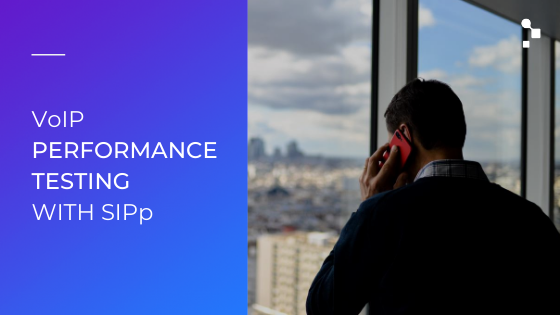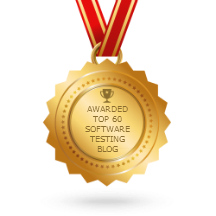Gustavo Vázquez was one of the first Latins to participate in WOPR, which opened a window that would eventually imply new horizons and opportunities for Uruguay, for the entire region, and the very growth of the IT industry. Hosted by Abstracta, this year the workshop is going to be held in Latin America for the first time in history, specifically in Uruguay. Read Gustavo’s testimony in this article!
By Natalie Rodgers
WOPR was held for the first time in October 2003 in New York, with Scott Barber, Ross Collard, and Dave Jewel as its Contents Owners. Throughout these almost 20 years, the workshop has gained strong relevance in the IT industry and has generated a huge impact on global development worldwide.
Gustavo Vázquez was one of the first Latinos to participate in WOPR. It was in May 2008, also in NY, and the main topic of the event was: “How can we teach performance testing?” The slogan fit Gustavo’s aspirations perfectly since at that time he was working as a Consultant at the Software Testing Center (CES) of the School of Engineering of the University of the Republic, in Uruguay.
He now has been a Project Manager at Pyxis for more than 8 years and a professor at the University of the Republic for almost 24, his time at WOPR left its mark on Gustavo’s path and vision. And, consequently, in the learning path of hundreds of students, great protagonists of current and future software development. Many of them are also successful leaders and important referents in the industry at a global level.
His presentation at the 10th edition of the workshop showed that teaching performance in the academic environment was not only possible but also necessary. WOPR endorsed his position and, from there, new careers and training possibilities emerged in Uruguay and the world, which had profound repercussions in the industry.
None of this was imaginable for Gustavo back in 2008 when he was called to participate in the prestigious event.
– What were your feelings when you were invited to participate in WOPR10?
It was all very strange, like a shock. Not only because of the event but also because of who was inviting me: it was Scott Barber himself, who at that time was seen as the ultimate guru on the subject. Then, upon arriving at the event, I remember talking to people I knew from books and who had vast experience and discovering to my amazement that I could hold talks as an equal with them. I also remember receiving incredible personal feedback from Rob Sabourin at the end of my presentation… I think the feeling at the time was one of total shock, of not being able to believe where I was.
Even now, as I look back on it, I feel a powerful sense of disbelief at what we accomplished. And I say “we” achieved because the knowledge that allowed me to position myself there at WOPR was something that we had generated among a few of us, with just a few basic guidelines on how to do things, with a lot of desire and drive.
– How did you find out about the conference?
We already knew about WOPR with the CES team back then (Federico Toledo, Matías Reina, and Simon de Uvaron). We saw it as something very elitist at the time. The theme that year was such that we, people from the academy who were playing with performance testing and even teaching others, could show what we were doing.
I had met Scott at a course in Madrid where I was a speaker. When I saw that WOPR had that theme, I sent him an email with some slides of a talk comparing different performance tests with Formula 1 races from different eras. Those were things that we were encouraged to do with people like Monica Wodzislawski. They were creative proposals that more than teaching something that we were still learning, sought to leave people thinking. Only a day later, I found Scott’s reply, with a copy to the organization, telling me that if I managed to get to New York, I was in the event.
– The main theme of that edition of WOPR10 was: “How can we teach performance testing? What was your main contribution to this event?
The academic vision was not present at the event. Putting it on the table was the biggest contribution at the time! Those who were there all had different profiles, more professionally oriented. For them, to teach was to teach their peers. I think the vision that performance could be taught as a subject in a university was not in the defined scope. That was the biggest contribution we brought to that event.
– How did this change the academic landscape and professional training?
Up to that point, they were thinking about doing small courses at the university, but nothing very formal. The presentation we took to WOPR10 put on the table that teaching performance in a tertiary education environment was something possible. Until then, there was nothing at that level nationally or internationally, and WOPR validated it. Eventually, postgraduate courses in performance, a career in testing at CES, and an optional subject of software verification (with performance included) emerged in Uruguay.
– What lessons did you take with you?
Another world. Another kind of people and way of thinking. Another way of understanding performance issues. I took a lot with me: contacts and new knowledge. It helped me to understand the strengths of the CES, from which it would be possible to bring a new look to the subject even for world leaders.
Being surrounded by people representative of the industry and with great knowledge made me see all that we had to go through at that time. But it also made me understand that we were at the right level, that we were on a very good path. I understood that from Uruguay, we could be there, at a global level, providing services from the south. It made me believe that we could do it. It was a strong experience.
– Through your participation, Latin America had a presence in a prestigious international IT industry event. Do you think this has been of value for the positioning of Uruguay as a digital hub in the region?
I think it was the beginning of a lot. The contacts that were brought from that event allowed them to come to give courses, to join us in events. Even today those contacts and what we generated at WOPR could be used not only by CES but by the whole environment and the testing community that was created from that moment on.
I think that what CES did for the market and the quality of software in Uruguay, had a component in what we brought from that event and others that followed.
– How important do you think it is that it will be held for the first time in Latin America and specifically in Uruguay?
It is another step forward in the recognition of Uruguay as a place where things are done well and as a country that provides services and training in testing regionally and worldwide too. It is the confirmation, many years later, that we were on the right track.
It will be incredible for those who participate from Uruguay to be able to be with top-level professionals right here, in our backyard. I think that for those who are organizing this event is something very mobilizing, a huge congratulations to those who achieved it. Undoubtedly, this will continue to open doors for a lot more.
Don’t miss Quality Sense Conf! Organized by Abstracta, It will take place just after WOPR29 in Montevideo, Uruguay, and you will be able to have the opportunity to meet face-to-face with many of WOPR29’s speakers who will also be there. Register here.
If you are interested in this topic, we recommend you to read all the articles of our saga “Performance Testing In-Depth”, which we inaugurated for the advent of WOPR29.
Follow us on Linkedin & Twitter to be part of our community!
Tags In
Natalie Rodgers, Content Manager at Abstracta
Related Posts
How to Optimize Website Speed for Black Friday
Is your website prepared for record breaking traffic and sales? Before you know it, it will be Black Friday and then, Cyber Monday. These consumer “holidays” bring about the race for shoppers to buy all of the coveted items on their shopping lists before they’re…
VoIP Performance Testing for a Mental Health Hotline App
How we used SIPp for VoIP performance testing over the SIP protocol Not too long ago, some of my colleagues and I helped to run performance tests for a new mobile app with a hotline called “Yo Te Escucho” (which translates in English to “I…
Search
Contents








